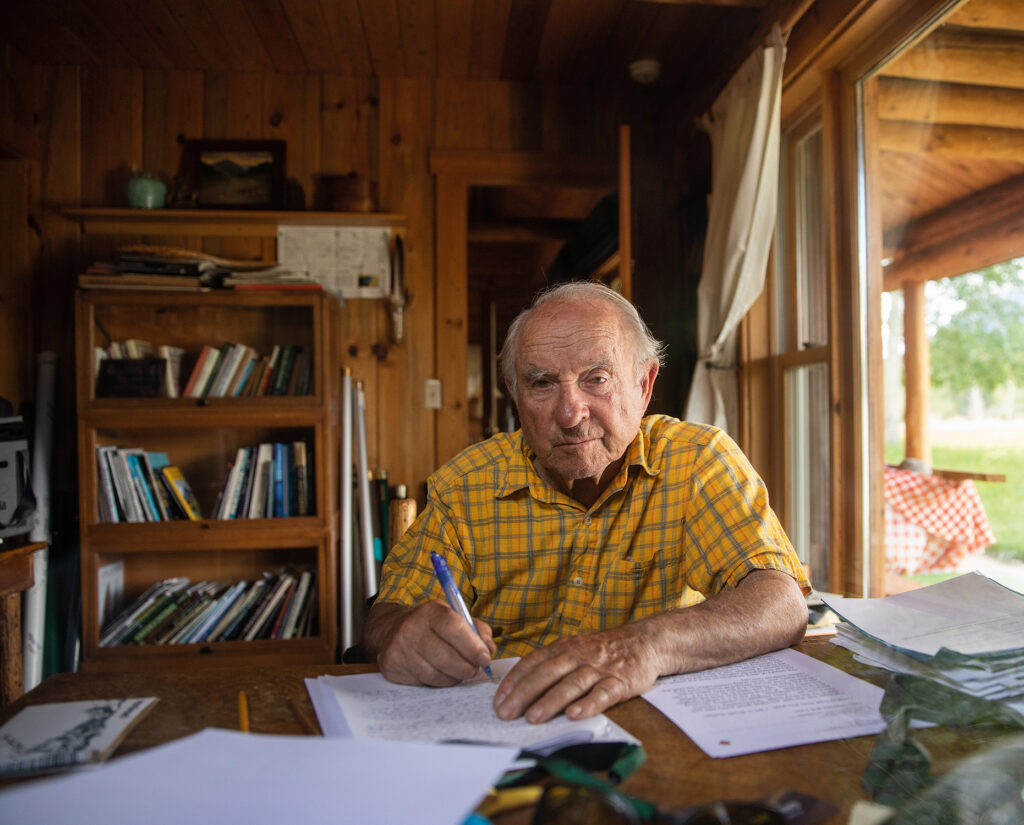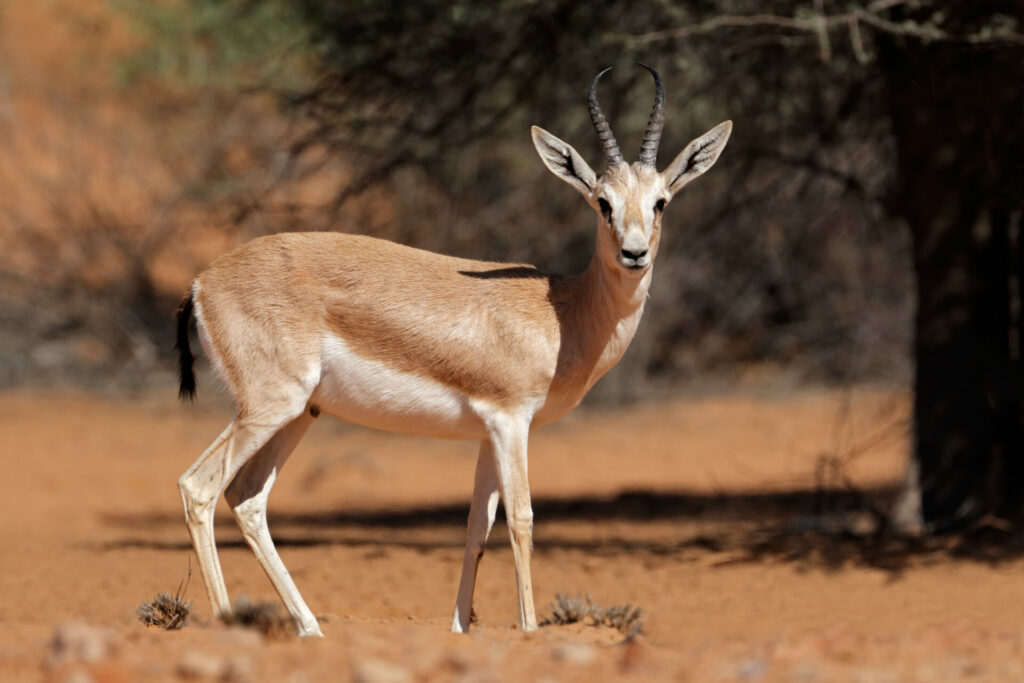The death of Moti, a badly injured Asian elephant just 11 days after being rescued has drawn global attention to the issue of captive tourist animals in India.
The tragic plight of the Asian male elephant, named Moti, received widespread coverage on social media thanks to animal rescue organisation, Wildlife SOS who battled to save the pachyderm.
Moti was found collapsed in the foothills of the Indian state of Uttarakhand after being neglected by his owner for months. He was in a critical condition and on the verge of death when rescue teams from conservation charity Wildlife SOS came to the scene.
The elephant had suffered for months with an untreated fracture, a mutilated foot pad, and multiple other injuries. His foot pad had been separated from the base of his foot, exposing raw tissue
The conservationists described him as ‘a 35-year-old bull who lived his life as a begging elephant, made to give countless rides’.
The elephant had suffered for months with an untreated fracture, a mutilated foot pad, and multiple other injuries. His foot pad had been separated from the base of his foot, exposing raw tissue. Tests also showed he had been starved.
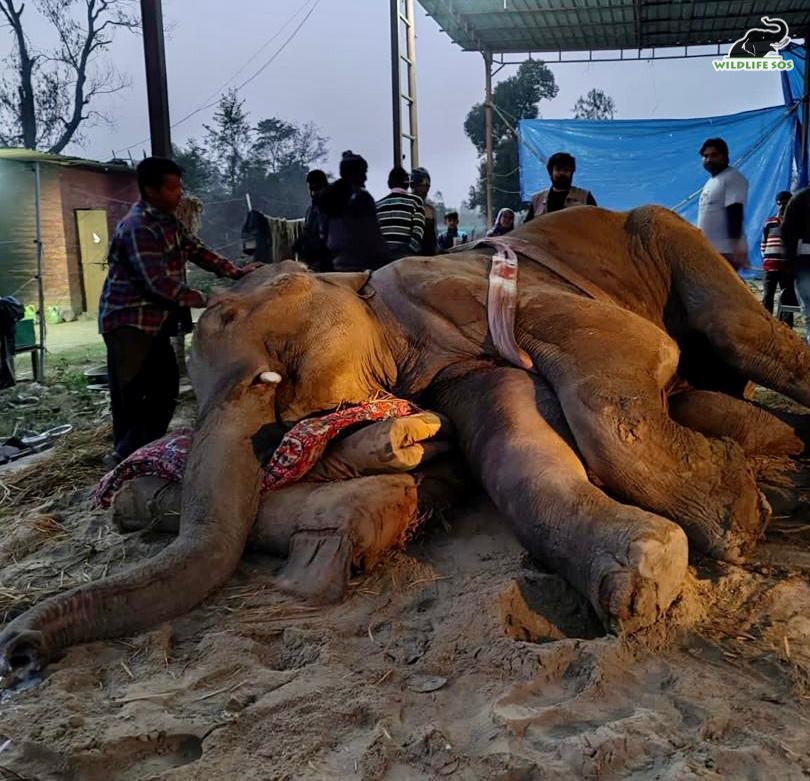
The charity said foot problems tend to be the biggest problems with captive elephants, as they are forced to walk on hot tarmac roads, which leads to foreign objects like glass getting embedded in their feet. Hot surfaces also lead to skin burns.
Moti’s Final Journey
Moti had collapsed due to his injuries and was unable to stand for 17 days. His condition became critical when hypostatic pressure—low blood pressure from lying down for too long—started to threaten kidney and heart functions.
However, for a short period his health improved and he started to eat and drink, while lying on a bed of straw.
‘Moti seems to be appreciating the love and attention. With pain management, soft blankets, and lots of treats, he is giving soft rumbles to the team’
Wildlife SOS
Veterinarians continued to care for Moti’s injuries, and the charity said ‘he seems to be appreciating the love and attention. With pain management, soft blankets, and lots of treats, Moti is giving soft rumbles to the team. We are making him comfortable while caring for his injuries, and still hoping for the best. Moti is a fighter, and we won’t give up on him’.
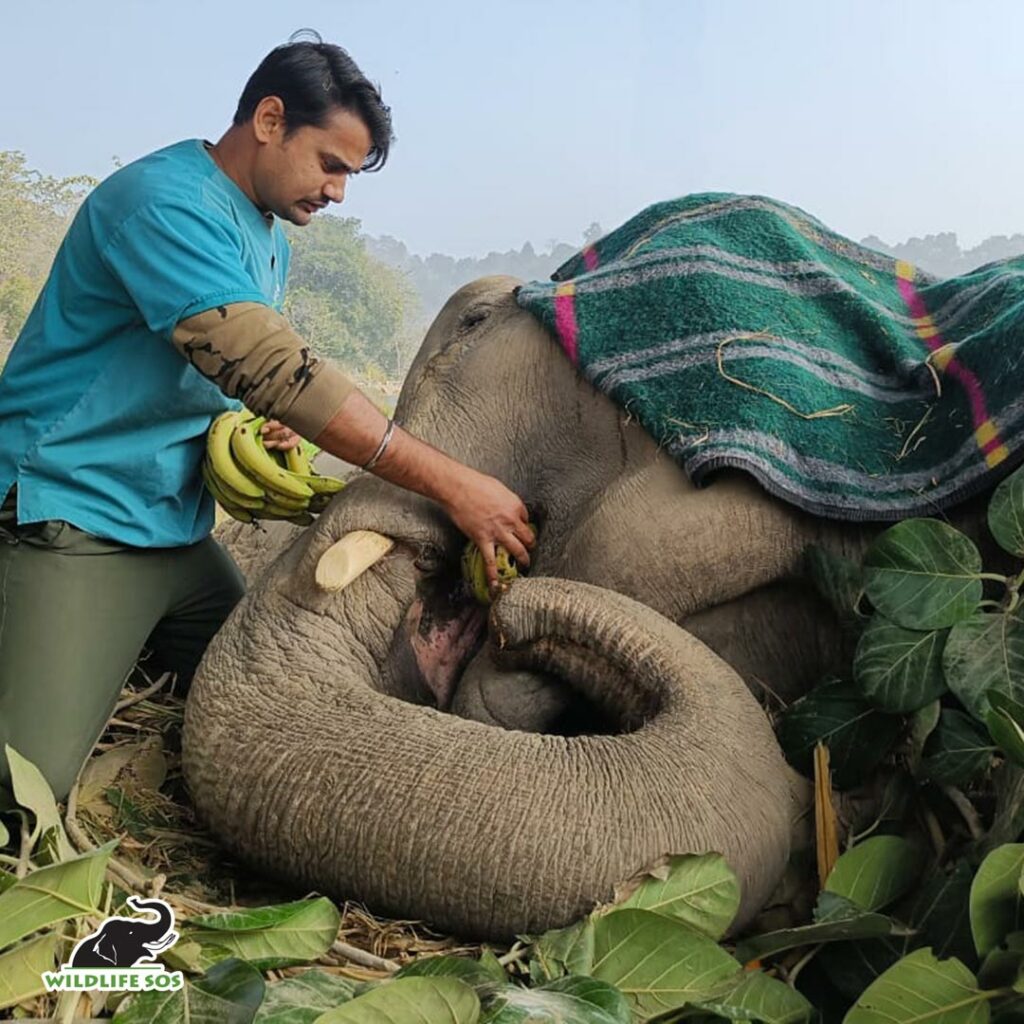

He eventually managed to stand, but soon after the wildlife team saw his condition worsen.
With his health starting to quickly deteriorate, the Indian Army was called in to build a structure to keep Moti upright. General V K Singh led a unit of Bengal Sappers (Engineers) to construct the framework which supported him and rescue teams eventually managed to lift him upright on February 7.
But they then had to embark on the challenge of removing him from the remote location. Despite their best efforts, the elephant died on February 18.
‘Moti is not the first of such victims, many elephants suffer from painful, life-threatening injuries every year in India due to abuse, severe neglect and lack of medical care. I
Kartick Satyanarayan, CEO and co-founder of Wildlife SOS, said: ‘Over the past four weeks, the Wildlife SOS team cared for Moti, eased his pain, and showed him the first love and compassion he had likely ever experienced. Tragically, last Saturday Moti gave up his fight and passed away peacefully surrounded by Wildlife SOS caregivers.’
Say NO to Elephant Rides
India is home to almost 60 per cent of Earth’s remaining Asian elephant population. There are fewer than 22,000 left in the wild, with approximately 2,700 in captivity.
Many elephants are privately owned by people for commercial purposes, such as tourist rides and photo opportunities or used for labour. Others take part in religious or ceremonial rituals and parades.
Elephants’ spines however cannot support the weight of people and doing so all day can lead to permanent spinal injuries. There are further complications from having a chair (howdah) attached to their backs. This clunky contraption rubs on their backs, causing blisters that can become infected.
Under Indian law elephant owners must log their animals condition with a wildlife warden who will ensure they are in good health. The warden also ensures that owners are able to provide the elephant with shelter, nutrition and veterinary treatment. When not enforced, wildlife experts say, it can lead to tragic situations like Moti.
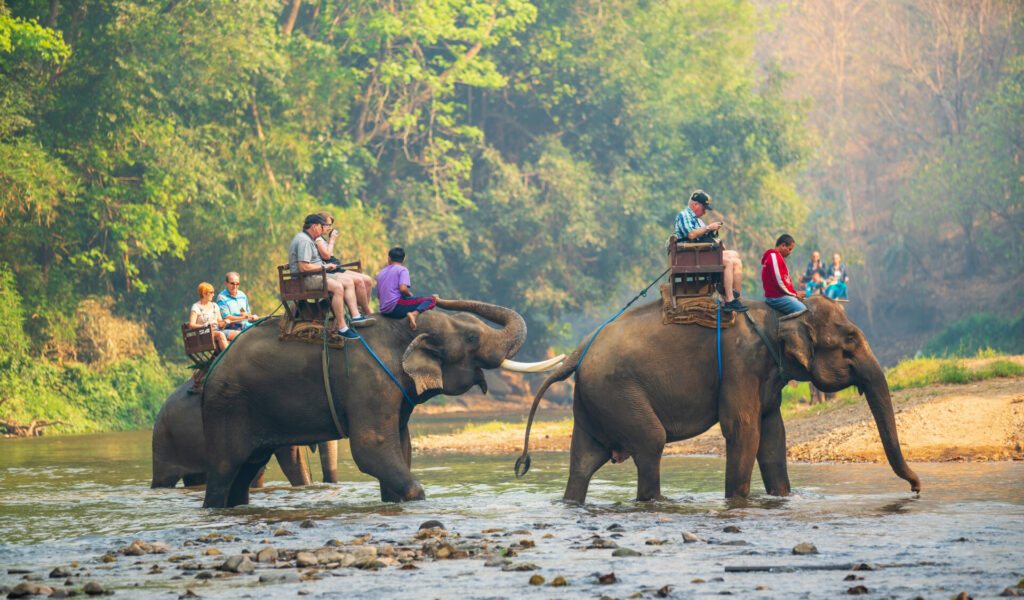
‘Moti is not the first of such victims, many elephants suffer from painful, life-threatening injuries every year in India due to abuse, severe neglect and lack of medical care. In the spirit of Moti’s strength, kindness and willingness to fight, we need to make sure Moti didn’t die in vain,’ Satyanarayan said.
‘Gut-wrenching to our team, If we had learned of Moti’s condition sooner, our skilled veterinarians likely could have helped him live. With the world watching Moti, we must focus on making something good come from this tragedy.’
You can get involved or report elephants being abused here









